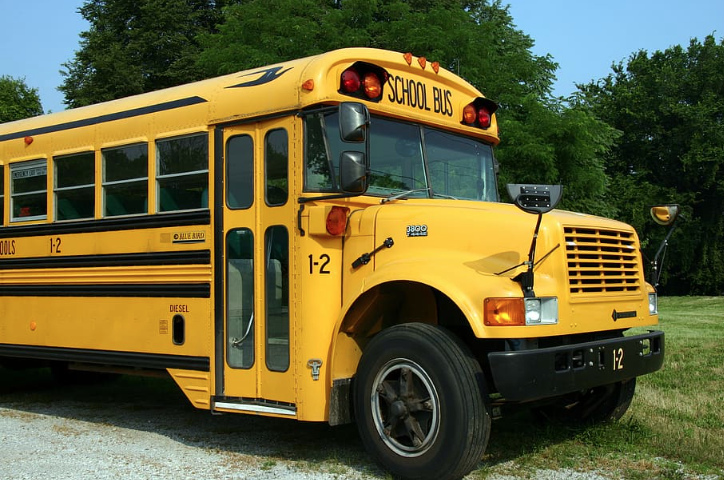State approves additional funding for nonpublic school busing
The State Fiscal Year 2024 will include an increase in funds for private school busing — transportation relied on by a number of Catholic school students within the Archdiocese.
The budget, signed by Gov. Phil Murphy on July 1, includes a per-pupil increase of $143, from $1,022 to a maximum of $1,165 per pupil.
Increased funding for nonpublic school transportation has been a leading issue for the New Jersey Catholic Conference (NJCC), which serves as the public policy arm of the Catholic Church in New Jersey, and the New Jersey Council for American Private Education (NJ CAPE), a coalition of national organizations and state affiliates serving private schools.
Transportation is the lifeblood of nonpublic schools, according to the NJCC.
The COVID-19 pandemic created a shortage of school bus drivers, and the extra funding will allow for more transportation routes and additional drivers, NJCC officials said in a July 13 release.
Barbara Dolan, Archdiocese of Newark Superintendent of Schools, said many families who choose to send their children to schools in the Archdiocese rely on a seat on a school bus, or aid-in-lieu payments, to get their children to and from school.
In his March 27 testimony to the Assembly Budget Committee on behalf of NJCC and NJ CAPE, NJCC’s Director of Education, Dr. George Corwell, said “the problem finding school bus drivers continues to be a disaster for the nonpublic school community. Transportation is the lifeblood of nonpublic schools, and to lose significant amounts of transportation affects the enrollment of nonpublic schools, even causing possible school closures.”
Corwell added that “many parents are unable to transport their child to a nonpublic school because they are working multiple jobs to pay tuition,” which creates an even greater need for safe, reliable transportation for students, many of whom come from underserved communities.
The ceiling for the current school year was increased in the last state budget by $22 per pupil, hardly enough to cover bids on the routes by private companies, the NJCC stated in materials promoting a higher increase. The NJCC and New Jersey Network of Catholic School Families had supported an increase in transportation funding from the statutory ceiling of $1,022 to at least $1,300 per pupil.
“The increase in nonpublic school transportation funding, although less than what we hoped for, will certainly be a help,” Dolan said. “We appreciate and thank the legislators that made sure our Catholic school families were represented in the state budget. We know that our Catholic schools provide a quality education at a great savings to the State of New Jersey, so it is important that we work to ensure the needs of families that choose nonpublic schools are met in an equitable manner.”
Corwell acknowledged that this year’s increase of $143 per pupil adds more money to last year’s ceiling of $1,022, but feels additional funding is needed to maintain a healthy transportation infrastructure, especially given the savings to state and local budgets that are realized when a student attends a nonpublic school.
“We are truly grateful to our supporters in the Legislature who fought on behalf of parents who deserve the right to have their children transported to the school of their choice,” he said. “But funding remains at a lower level than is necessary because 85% of nonpublic routes are run by private contractors with no limit on their profit margin.”
NJCC’s executive director, James King, extended his appreciation to Corwell, members of NJ CAPE, and Catholics across New Jersey who helped make the increase possible by contacting their legislators to raise awareness around this issue. “The outcome of this effort provides proof that when Catholics join together, we become a louder, stronger voice with an increased ability to help pass laws that make New Jersey a better place for all who call it home.”
Attempting to accommodate the lower per-student funding, nonpublic schools have tried combining public and nonpublic students on the same bus, eliminating half-school days and bidding routes at a reduced number of days. However, increases in fuel and decreasing numbers of school bus drivers have thwarted efforts to make busing available to all nonpublic school students, the NJCC stated.
The Fiscal Year 2024 state budget also contained modest increases in technology, nursing services, and compensatory education.
“We are pleased that the NJ State Legislature included increases in nonpublic school accounts for transportation, technology, compensatory education, and nursing services,” Dolan said. “We are grateful to the legislators that supported these increases and to all those who reached out to their legislators to advocate for increases in aid for non-public schools.”



